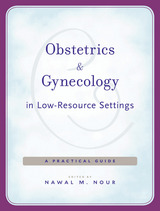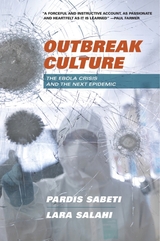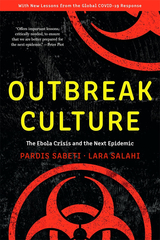6 start with O start with O

Grounded in a holistic anthropological approach and using a range of ethnographic and ecological case studies, Obesity shows that the human tendency to become and stay fat makes perfect sense in terms of evolved human inclinations and the physical and social realities of modern life. Drawing on her own fieldwork in the rural United States, Mexico, and the Pacific Islands over the last two decades, Alexandra A. Brewis addresses such critical questions as why obesity is defined as a problem and why some groups are so much more at risk than others. She suggests innovative ways that anthropology and other social sciences can use community-based research to address the serious public health and social justice concerns provoked by the global spread of obesity.

Responding to the growing need for tried-and-trusted solutions to the reproductive health care issues confronting millions of women worldwide, Obstetrics and Gynecology in Low-Resource Settings provides practical guidelines for ensuring the delivery of quality OB/GYN care to women in resource-poor countries. Including contributions from leading clinicians and researchers in the field, this welcome overview fills an important gap in existing medical literature on women’s health care and will be an invaluable resource for doctors, clinicians, and medical students at all stages of their careers who work in the global health arena.
The reproductive health risks that all women face are greatly exacerbated when health care facilities are inadequate, equipment and medications are in short supply, and well-trained medical staff are few and far away. Often in these settings, the sole doctor or medical professional on hand has expertise in some areas of women’s reproductive care but needs a refresher course in others.
This informative guide features hands-on, step-by-step instruction for the most pertinent OB/GYN conditions—both acute and chronic—that health care workers in the field confront. The authors examine a wide range of topics, including: strategies to reduce maternal mortality and stillbirths; infectious and sexually transmitted diseases, including malaria and HIV; cervical cancer; contraception; prenatal, delivery, and newborn care; and complications arising from gender-based violence and female genital cutting. Published in a convenient format with a durable binding, this reference will be an essential companion to health care providers throughout the world.



An award-winning genetic researcher who helped contain the Ebola outbreak and a prize-winning journalist reveal what it will take to prevent the next pandemic from spiraling out of control.
As we saw with our response to Ebola and Zika—and are seeing now with the disastrous early handling of the coronavirus COVID-19 outbreak—a lack of preparedness, delays in action, and large-scale system-wide problems with the distribution of critical medical resources can result in lost lives.
Outbreak Culture examines each phase of the 2014 Ebola outbreak in West Africa—one of the largest and deadliest epidemics to date—and identifies factors that prevented key information from reaching physicians. Drawing insights from clinical workers, data collectors, organizational experts, and public health researchers, Pardis Sabeti and Lara Salahi expose a fractured system that failed to gather and share knowledge of the virus and ensure timely containment. The authors describe how much more could have been done by global medical and political organizations to safeguard the well-being of caregivers, patients, and communities affected by this devastating outbreak and they outline changes that are urgently needed to ensure a more effective coordinated response to the next epidemic.
Secrecy, competition, and poor coordination plague nearly every major public health crisis—and we are seeing their deadly consequences play out again. A work of fearless integrity and unassailable authority, Outbreak Culture seeks to change the culture of responders.

A Choice Outstanding Academic Title of the Year
“A critical, poignant postmortem of the epidemic.”
—Washington Post
“Forceful and instructive…Sabeti and Salahi uncover competition, sabotage, fear, blame, and disorganization bordering on chaos, features that are seen in just about any lethal epidemic.”
—Paul Farmer, cofounder of Partners in Health
“The central theme of the book…is that common threads of dysfunction run through responses to epidemics…The power of Outbreak Culture is its universality.”
—Nature
“Sabeti and Salahi present a wealth of evidence supporting the imperative that outbreak response must operate in a coordinated, real-time manner.”
—Science
As we saw with the Ebola outbreak—and the disastrous early handling of the COVID-19 coronavirus pandemic—a lack of preparedness, delays, and system-wide problems with the distribution of critical medical supplies can have deadly consequences. Yet after every outbreak, the systems put in place to coordinate emergency responses are generally dismantled.
One of America’s top biomedical researchers, Dr. Pardis Sabeti, and her Pulitzer Prize–winning collaborator, Lara Salahi, argue that these problems are built into the ecosystem of our emergency responses. With an understanding of the path of disease and insight into political psychology, they show how secrecy, competition, and poor coordination plague nearly every major public health crisis and reveal how much more could be done to safeguard the well-being of caregivers, patients, and vulnerable communities. A work of fearless integrity and unassailable authority, Outbreak Culture seeks to ensure that we make some urgently needed changes before the next pandemic.
READERS
Browse our collection.
PUBLISHERS
See BiblioVault's publisher services.
STUDENT SERVICES
Files for college accessibility offices.
UChicago Accessibility Resources
home | accessibility | search | about | contact us
BiblioVault ® 2001 - 2024
The University of Chicago Press









